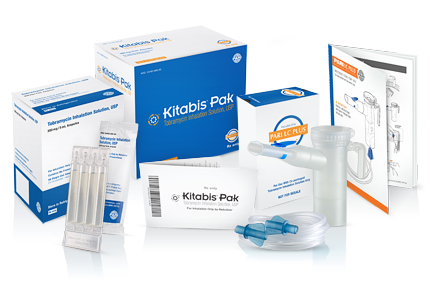Kitabis Pak, the first co-packaging of generic tobramycin inhalation solution with a PARI LC PLUS Nebulizer to address cystic fibrosis, was recently listed among ten notable drug-device approvals of 2014, published in the current issue of Drug Development & Delivery.
The acknowledgment comes after recent news that PARI, makers of the cystic fibrosis nebulized antibiotic therapy Kitabis Pak, had announced that its product was added to state healthcare systems across the United States and is now part of the Preferred Drug List (PDL) for multiple state programs, which increased access to the only FDA approved co-packaging of tobramycin inhalation solution combined with the PARI LC PLUS nebulizer handset. Each set of Kitabis Pak includes a 28-day course of generic tobramycin inhalation solution plus the PARI LC PLUS nebulizer handset.
“Having Kitabis Pak recognized as a notable drug-device approval confirms PARI’s vision to make the prescription process for generic tobramycin and the PARI LC Plus nebulizer more convenient and cost effective for patients,” explained Geoff Hunziker, the president of PARIUSA. “Since Kitabis Pak is one prescription for both the drug and nebulizer handset, it ensures patients receive the proper delivery device for tobramycin inhalation solution.”
The article that acknowledged PARI LC’s nebulizer as an effective drug delivery system also named Kitabis Pak as the fist approved drug-device combination specifically approved to address cystic fibrosis underscoring to both patients and clinicians the optimal safety and efficacy of the formulation.
“We have always believed that it is important for patients and healthcare professionals to understand that tobramycin inhalation solution is only approved for use with the nebulizer handset in Kitabis Pak. Being recognized in this category alongside other innovative pharmaceutical companies confirms our approach in setting a new standard of care for nebulized drugs,” explained Jan Zimmermann, Portfolio Manager at PARI USA.
Cystic fibrosis is a life-threatening disease that affects 30,000 patients in the United States alone; the disease is caused by a genetic mutation that leads to poorly hydrated and thickened mucus secretions in the lungs.

